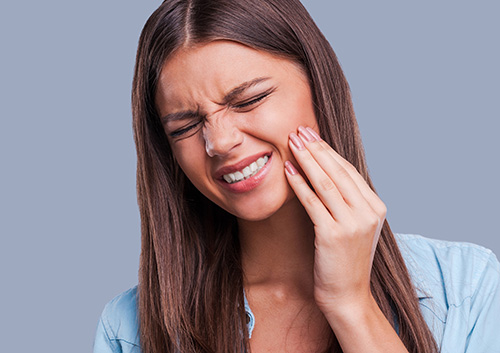I chipped a tooth. What can I do?
May 23rd, 2017

You just crunched down on a piece of hard food when you suddenly realize there is something hard still in your mouth. Your nightmare is confirmed when you retrieve a piece of your tooth from your mouth. You chipped your tooth; now what?
Obviously, the first thing you need to do is call our Richland, MS office. While we make every effort to see emergent cases immediately, you may have to wait a day or so before you can see Dr. Hilary Craddock and Dr. Joyce Pace. Luckily, it’s easy to take care of your chipped tooth while you wait.
How to Take Care of a Chipped
The last thing you want is for the tooth to become infected or break even more. Let’s look at a few things you can do:
- If the chipped tooth is causing you pain take an over-the-counter pain medication, like Tylenol. Always follow the directions on the label.
- You should also rinse your mouth with lukewarm saltwater, as this will help prevent an infection from setting in.
- If your chipped tooth has a sharp edge, cover it up with a piece of wax to prevent it from cutting you cheek, tongue, or lip.
- If you have to eat, make sure you eat soft foods and don’t bite down on the chipped or broken tooth.
Treatment Options for a Chipped Tooth
- Dental Filling and Bonding – If you only have a small chip in your tooth, Dr. Hilary Craddock and Dr. Joyce Pace will probably fix it with a filling. If it is a front tooth, we may bond the tooth using a tooth-colored compound.
- Dental Crown or Cap – If you broke a large piece of your tooth, we may grind the remaining part of your tooth and put a crown or cap on it.
- Dental Veneers – If you chipped or broke your front tooth then choosing a dental veneer may be your best choice. It will make your tooth look completely normal.
- Root Canal – If you cracked your tooth and the center (pulp) of the tooth is exposed and infected, you will need a root canal. If the center of your tooth is exposed, it becomes vulnerable to bacteria that will cause your tooth to abscess.
Chipping or breaking your tooth is never a good thing, and you should always call our Richland, MS office right away. The sooner you get your tooth repaired the less likely you are to have any problems with it.







 Website Powered by Sesame 24-7™
Website Powered by Sesame 24-7™